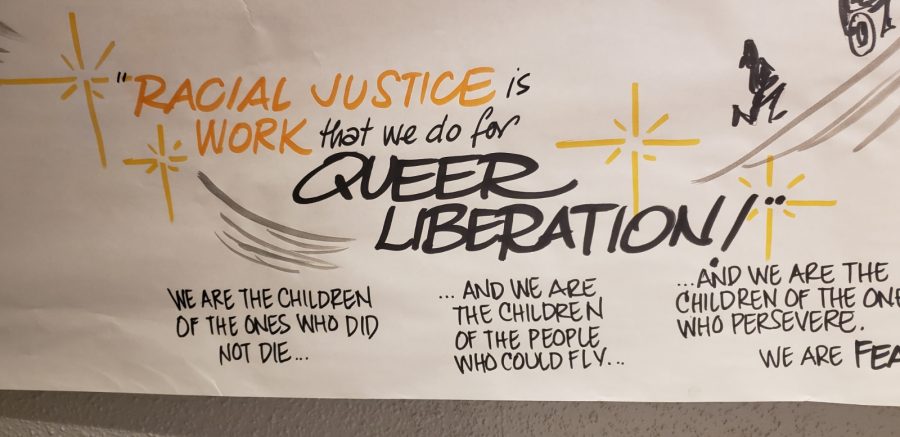A week before spring semester classes began, I traveled with eight other students to Detroit for the largest LGBTQ conference in the country.
Creating Change is a meetup for LGBTQ activists and other people in the community from all over the world. From high school students to adult professionals, people from all walks of life came together to discuss a myriad of issues.
Everyone had a unique experience by customizing their day through the different institutes and workshops they chose to attend. However, the message dominating the conference was that everyone should be proud of being who they are and of being different.
The LGBTQ community often experiences disagreements and infighting. One problem is the idea that to identify a certain way, a person must look or act according to preset norms. Conversations can turn into fights over which people deserve to be in the community. Although I have experienced that in other LGBTQ spaces, there was never a moment where I felt pressured into a role at this conference.
Steinhardt graduate student Sarian Sankoh said that the conference opened her eyes to the diversity of the community.
“Creating Change showed me that queer and trans people can look and be anything,” Sankoh said. “We don’t all look one way. Especially being a bisexual cisgender woman, it definitely made me feel like part of the community, that queerness isn’t defined as one thing.”
Bisexuality in the queer community is a polarizing issue despite the fact that it comprises the B in LGBTQ. The stigma around bisexuality is heavily present in many queer spaces, and this is one of the issues that Creating Change addressed.
CAS first-year Lexie Kolberg felt moved by her time at the conference.
“I’m no longer wanting to hide that I am bisexual from LGBTQ+ people,” Kolberg said. “Rather, I am completely out there with being bisexual.”
I centered my experience at the conference around queerness and religion because I am gay and Catholic. In queer spaces, religion is often frowned upon — and legitimately so, considering the history between the Church and the LGBTQ community. As a result of this tension, I rarely receive the opportunity to discuss the intersection of my queerness and my faith, and having that opportunity at Creating Change was extremely eye-opening. It taught me that I don’t need to repress that side of my life to be accepted into queer spaces.
In conclusion, there is no such thing as not being queer enough. Queer people can coexist with all of their other identities — whether spiritual, racial, economic or occupational. Gay, trans, ace and aro, bisexual, pan and gender non-conforming people from all paths of life are welcome. Society must abolish the idea of being queer enough. No person needs to conform to a set of standards in order for their identity to be valid.
A version of this article appears in the Monday, Feb. 4, 2019, print edition.
Email Ted Ravago at [email protected].


























































































































































